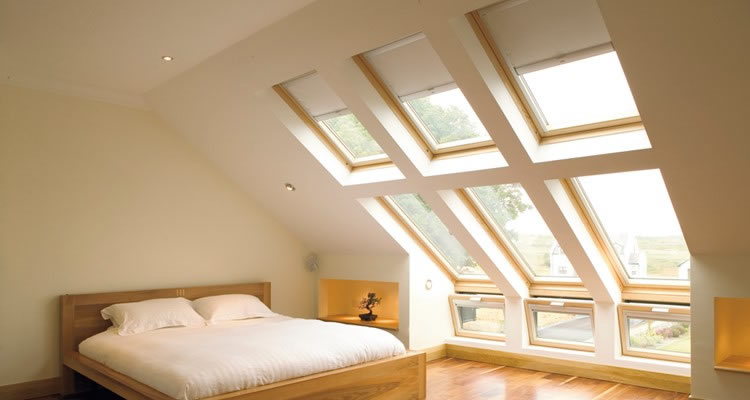Converting a loft into a functional living space is an excellent way to add extra space and value to your home. However, it's essential to consider the cost involved in the process before making any decisions. The cost of a loft conversion varies depending on several factors, including the size of the space, the type of conversion, and the materials used. In this article, we'll explore the top factors that affect the cost of a loft conversion.
Would you like a free, no obligation loft conversion quote?
Tap or click to request yours today!
1- Type of Loft Conversion
The type of loft conversion you choose is one of the biggest factors affecting the cost. The most popular types of conversions are roof light, dormer, hip-to-gable, and mansard. Roof light conversions are the cheapest, as they require minimal structural work and mainly involve installing skylights. Dormer conversions are the most popular, as they provide the most additional space and allow for more natural light. Hip-to-gable and mansard conversions are the most expensive, as they require significant structural work and can involve changes to the roofline.
2- Size of the Loft
The size of your loft will have a significant impact on the cost of the conversion. The larger the space, the more materials and labour will be required. A larger space also means more complex structural work and potentially higher building regulation costs.
3- Building Regulations
Building regulations are requirements set by the government to ensure that all building work meets certain standards for safety and energy efficiency. All loft conversions must comply with building regulations, which can add to the cost. The cost of building regulations varies depending on the type of conversion and the complexity of the work involved.
4- Materials Used
The materials used in a loft conversion can also affect the cost. The type of flooring, insulation, and finishing materials such as plasterboard and paint can all add to the cost of the conversion. High-quality materials will be more expensive, but they can also add value to your home and provide a longer-lasting result.
5- Complexity of the Work
The complexity of the work required for the conversion will also affect the cost. The more complex the conversion, the more expensive it will be. For example, if you need to add additional structural support or reconfigure the layout of the space, it will add to the cost of the conversion.
6- Location
The location of your home can also affect the cost of a loft conversion. The cost of labour and materials varies depending on where you live, so a conversion in an expensive area will likely cost more than one in a cheaper location. Additionally, the cost of planning permission and building regulations can also vary depending on your location.
7- Contractor Fees
The fees charged by the contractor for the conversion will also affect the overall cost. It's important to choose a reputable and experienced contractor who can provide a detailed quote and breakdown of costs. Make sure you get quotes from several contractors before making a decision and be wary of any quotes that seem too low, as this may indicate a lack of experience or quality.
8- Electrical and Plumbing Work
If you're planning to add a bathroom or kitchen to your loft conversion, you'll need to consider the cost of electrical and plumbing work. Adding electrical outlets and installing plumbing can add to the cost of the conversion, especially if you need to install new pipes and wiring.
9- Windows and Doors
Windows and doors are another factor that can affect the cost of a loft conversion. Installing new windows and doors can add to the cost, especially if you opt for high-quality materials. However, windows and doors can also provide natural light and ventilation, which can improve the overall value and functionality of the space.
10- Interior Design
Finally, the cost of interior design and decorating should also be considered. The final finishing touches such as walls, paint, light switches and light fittings, among other things will all have an impact on the final cost of your loft conversion.
Have a Question or Looking for Advice?
Tap or click to request a call back from our experts
In summary, there are many factors that can affect the cost of a loft conversion. The size of the loft, the materials used, the complexity of the conversion, and the location of the property are all important factors to consider. If you are considering a loft conversion, it is important to get quotes from a variety of companies and to factor in all of the potential costs before making a decision.
Here are some additional tips for saving money on your loft conversion:
- - Do your research and get multiple quotes from different companies.
- - Consider doing some of the work yourself, such as painting or decorating.
- - Be flexible with your timescale and be willing to start work during the off-season.
- - Choose a reputable company with a good reputation.
- - Get everything in writing, including the agreed price, the timescale, and the materials that will be used.
By following these tips, you should be able to save some money on your loft conversion and have an additional, ideal living space to enjoy.

